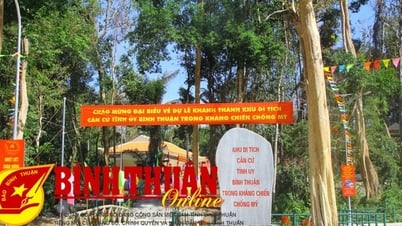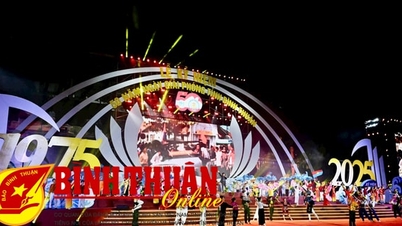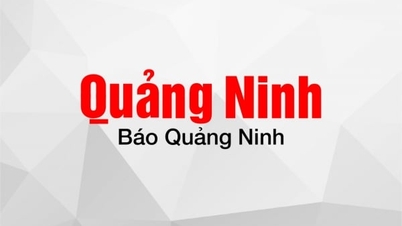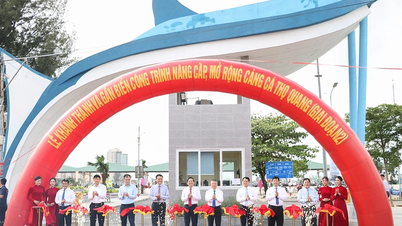In the process of managing and utilizing cadres, civil servants, and public employees (collectively referred to as cadres), the evaluation of cadres is of paramount importance and necessity. Evaluation is the prerequisite and basis for implementing the following stages: planning, training, development, rotation, appointment, and for implementing reward and disciplinary policies for cadres.
At the same time, the evaluation will help employees recognize their qualities and work capabilities so they can develop their strengths or correct weaknesses, thereby continuously improving and growing better.
In any agency or unit, accurate evaluation is essential for proper planning, utilization, and maximizing the effectiveness of the workforce. However, this is considered a difficult task in many agencies and units. Resolution No. 7 of the Central Committee (12th Congress) clearly stated that "cadre evaluation remains a weak point, failing to accurately reflect the true situation, not linked to specific results and products, and in many cases still subject to emotion, favoritism, leniency, or prejudice."

In reality, the evaluation of officials in many agencies and units today lacks scientific rigor, is general, qualitative, and subjective, and lacks specific, quantitative criteria. In the evaluation process, self-criticism and constructive criticism are not strong enough, still influenced by hesitation, deference, avoidance, and fear of confrontation. Therefore, Mr. Vo Van Thuong (when he was still a Standing Member of the Party Central Committee) said: "Before the discovery of wrongdoing, many officials were evaluated as having performed their duties well." And Mr. Nguyen Van Nen, a member of the Politburo and Secretary of the Ho Chi Minh City Party Committee, commented: "Currently, we have three types of officials: The first type dares to think, dares to act, dares to fight, and dares to take responsibility; the second type follows others, taking things as they come; and the third type, the negative group, only thinking of their own self-interest." Along with these three types, there is also the problem of officials fearing responsibility, avoiding it, and shirking their duties… It can be said that this situation is not unique to any particular locality or sector. In Binh Thuan , recently, at the conference summarizing Resolution 08-NQ/TU (14th term) on promoting the mobilization of investment resources for the development of socio-economic infrastructure by 2025, Provincial Party Secretary Duong Van An pointed out the fear of responsibility, avoidance, and shirking of duties among a segment of civil servants in local departments and agencies, thus causing delays in giving opinions on projects and investment attraction policies. Therefore, the evaluation of officials in agencies and units in the coming period must be more substantive to clearly identify and correctly classify different groups of officials.
To improve efficiency and accurately assess personnel performance, the current necessary step is for agencies and units employing personnel to issue evaluation criteria tailored to their specific characteristics, based on regulations from the Central Government and competent authorities. These criteria must clearly define specific outcomes associated with each job position, be scientifically structured with the principle of clear responsibilities and accountability; and differentiate between personnel without official positions and those holding leadership and management positions, linking these criteria to the performance of their respective agencies and units. The evaluation criteria must quantify the performance of each individual, specifying bonus points for certain criteria, such as: the level of task completion, the number of times tasks were completed ahead of schedule; the number of difficult or unexpected tasks resolved during the year; and the number of commendations and awards received. And points are deducted for the number and severity of violations, shortcomings, criticisms, and reminders received, as the implementation becomes more accurate and realistic. Currently, some localities, sectors, and fields have increased the application of information technology in personnel management, so the evaluation is more accurate than before. For example, at the "one-stop" service center, surveillance cameras and equipment are installed to assess the level of satisfaction of citizens when carrying out administrative procedures, or when officials have unprofessional attitudes or provide poor service, these are recorded by surveillance cameras and used as a basis for comparison when evaluating.
To truly achieve excellence, it is essential to identify the core principles as the foundation: political acumen, ideological stance, moral character, lifestyle, discipline, work style, and conduct; and the primary measure of success based on the fulfillment of assigned responsibilities and tasks. The responsibility of each individual, especially leaders, must be highly emphasized, setting a good example in self-criticism and criticism. The evaluation process must be open, democratic, impartial, and comprehensive, avoiding narrow-mindedness, bias, and favoritism. It is necessary to rely on multiple sources of information from superiors, subordinates, and the general public to ensure accuracy and effectiveness in cadre evaluation.
Source






![[Photo] Prime Minister Pham Minh Chinh attends the Conference on the Implementation of Tasks for 2026 of the Industry and Trade Sector](/_next/image?url=https%3A%2F%2Fvphoto.vietnam.vn%2Fthumb%2F1200x675%2Fvietnam%2Fresource%2FIMAGE%2F2025%2F12%2F19%2F1766159500458_ndo_br_shared31-jpg.webp&w=3840&q=75)





































































































Comment (0)